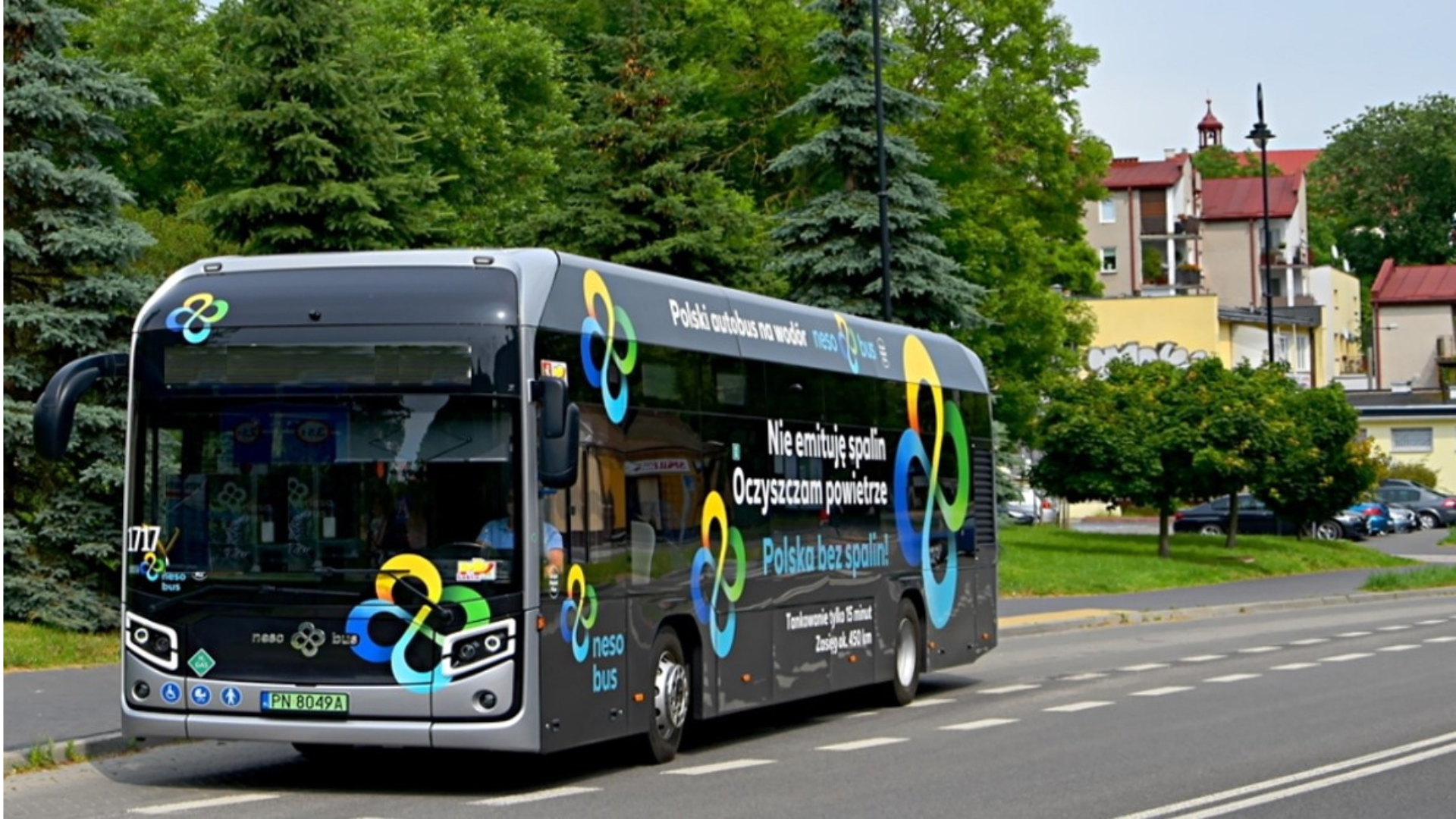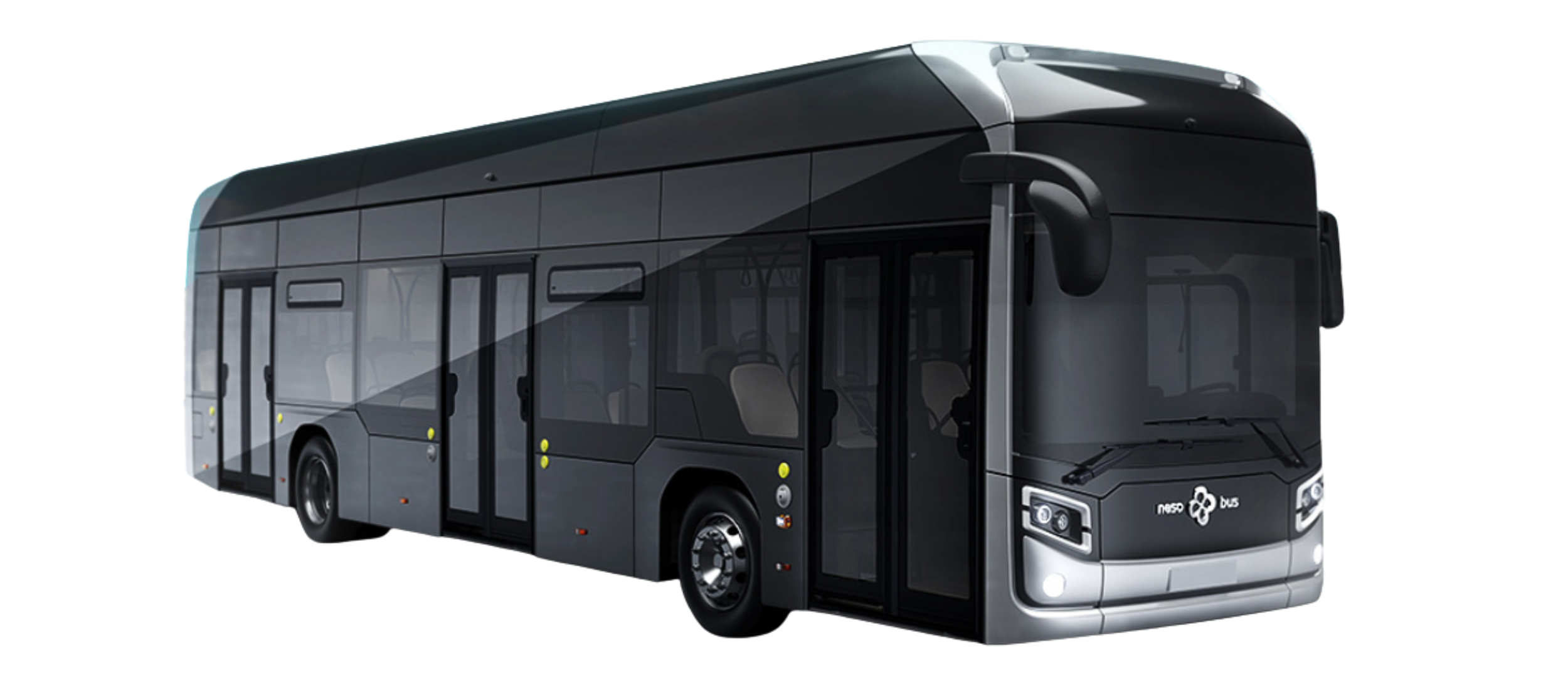
As hydrogen fuel cell bus fleet deployments continue to grow globally, in Europe, Poland's shift to decarbonization has seen an acceleration in its efforts to support public transport driven by alternative fuels. The NesoBus represents the country’s first domestically produced fuel cell bus, is designed for zero-emission urban transit, and is powered by Ballard.
An initial prototype was built in 2021, and subsequent extensive testing was undertaken across Europe - earning vehicle type approval in April 2022. The hydrogen-powered public transit vehicle was officially unveiled at IAA TRANSPORTATION 2022 in Hannover, Germany, and is now in service across Poland; with 20 units in operation in Rybnik, 10 deployed in Gdansk, five buses in service in Konin, and further roll-outs planned for Katowice, Krakow, and Chelm - which will have 26 fuel cell vehicles on its roads by the end of October 2025.
The 12-meter unit delivers 450km of operational range on a single fill, takes 15 minutes to refuel, and carries nearly 100 passengers. The decarbonized bus is supported in its duty cycle service on Polish domestic routes by three operational hydrogen refueling stations (HRS) located in Gdansk, Warsaw, and Rybnik under the Neso brand.

The zero-emission model is driven by Ballard's FCmove®-HD 70kW fuel cell engine, which is currently powering hundreds of public transit units across Europe.
Ballard's offering  is an advanced fuel cell module for medium- to heavy-duty decarbonized vehicles, which is compact, durable, and easy to install in an engine bay configuration. Benefiting from robust proton-exchange membrane (PEM) technology, the fuel cell engine delivers heightened power, range, and efficiency, with improved reliability and system integration flexibility to ensure exceptional performance.
is an advanced fuel cell module for medium- to heavy-duty decarbonized vehicles, which is compact, durable, and easy to install in an engine bay configuration. Benefiting from robust proton-exchange membrane (PEM) technology, the fuel cell engine delivers heightened power, range, and efficiency, with improved reliability and system integration flexibility to ensure exceptional performance.
The NesoBus is developed by PAK-PCE – a joint venture between the Polsat Plus Group and ZE PAK. With series production now underway, it is assembled at a dedicated manufacturing facility in Swidnik, Poland - and the collaboration's ambition is to manufacture more than 100 fuel cell buses per year now the site is fully operational.